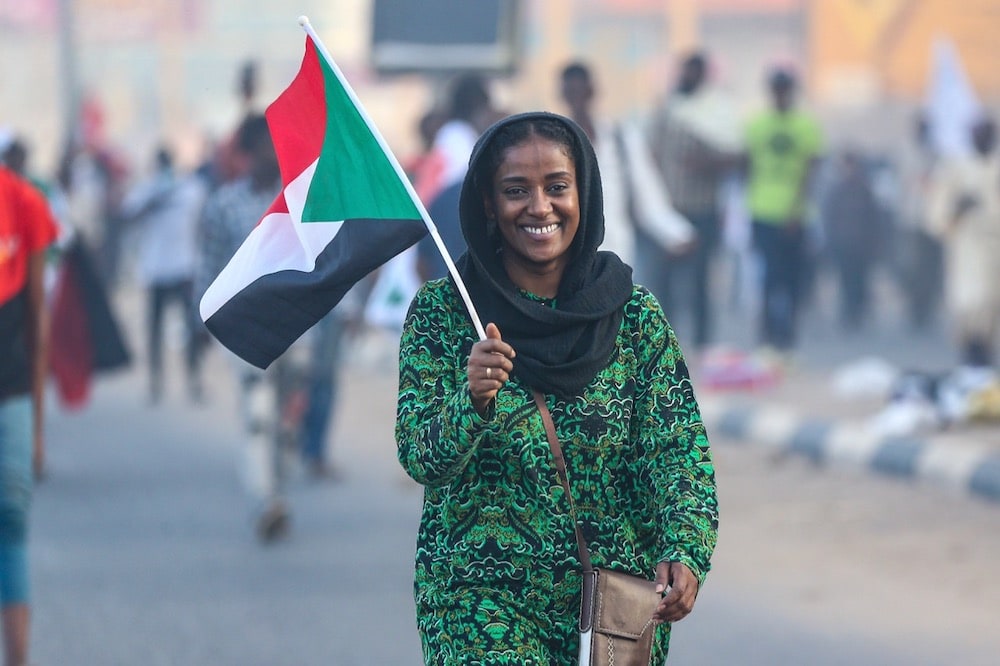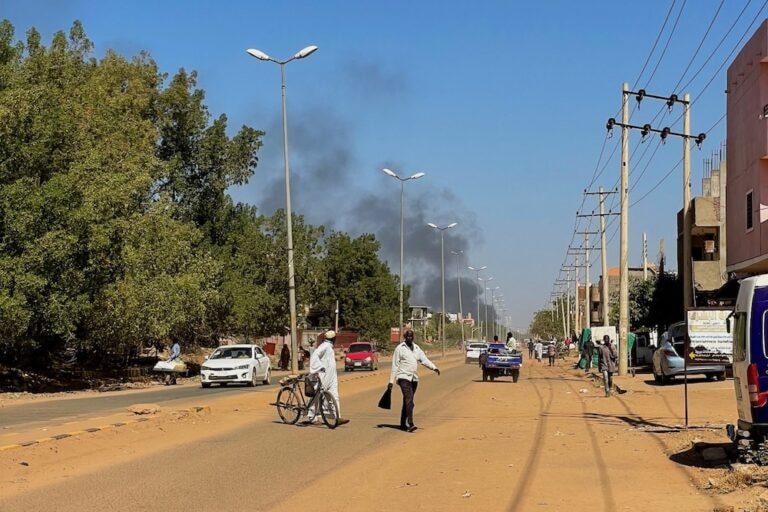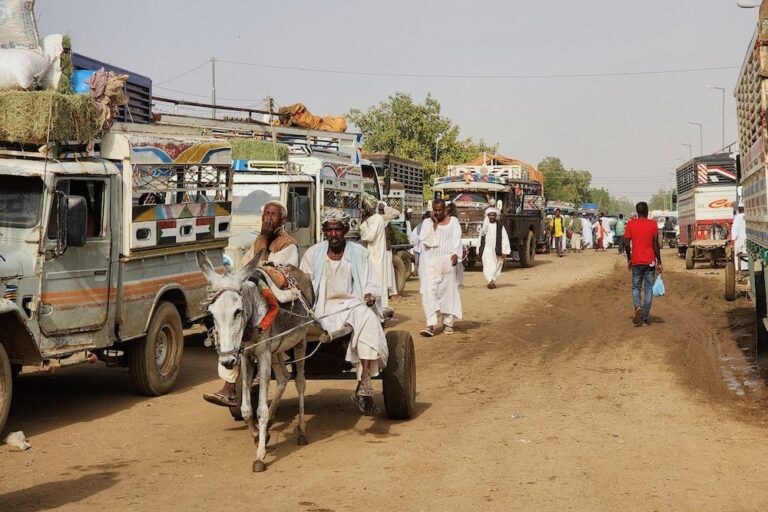Sudanese authorities should release all those unlawfully detained, end protester arrests, and lift the state of emergency, says Human Rights Watch.
This statement was originally published on hrw.org on 28 April 2022.
End protester arrests; free detainees; lift state of emergency
Sudan’s security forces have unlawfully detained hundreds of protesters since December 2021 and forcibly disappeared scores as part of its broader clampdown on opposition to the October 25 military coup, Human Rights Watch said today.
Security forces have beaten and otherwise ill-treated detained protesters, including stripping child detainees naked and threatening sexual violence against women. Sudanese authorities should release all those unlawfully detained, including those forcibly disappeared, while Sudan’s international partners should impose targeted individual sanctions on those responsible for the repression.
“The ruthless and brutal targeting of protesters is an attempt to instill fear, and has largely evaded international scrutiny,” said Mohamed Osman, Sudan researcher at Human Rights Watch. “For months, security forces have abused and illegally detained hundreds of people, including children, who express their opposition to military rule.”
On October 25, Sudan’s military chief, Lt. Gen. Abdel Fattah al-Burhan, effectively led a military coup against Sudan’s transitional government and declared a state of emergency. On December 26, he issued an emergency order granting security forces immunity and restored arrest powers to the General Intelligence Service (GIS), which has a track record of serious abuses. The emergency order overturned a decision by the transitional government to deny the agency arrest powers. Since Burhan restored the agency’s arrest powers, arbitrary arrests of protesters have spiked. The authorities abuse their emergency powers to carry out unlawful detentions, including incommunicado detentions, Human Rights Watch found.
Between February and April 2022 Human Rights Watch interviewed 25 people, 8 men and 17 women, including 8 former detainees, and family members of 13 detainees from Khartoum, Madani in Central Sudan, Port Sudan in the East, and El-Fashir in Darfur. Human Rights Watch also interviewed four lawyers involved in protecting protesters, two from the Emergency Lawyers Group, an informal group that has provided legal aid and advocates for those detained since the coup.
In early March, the United Nations’ Joint Human Rights Office in Sudan reported that more than 1,000 people were arrested between October 25 and March 3, including 148 children. The security forces have targeted people who are active or perceived to be active in the protest movement, Human Rights Watch found. Some were arrested during or in the immediate aftermath of demonstrations, and others were grabbed off the streets, or from their cars or homes.
Various sections of the security forces, including anti-riot police, Central Reserve Police (CRP), and military units from the Sudan Armed Forces (SAF), along with unidentified plainclothes agents, also have carried out arrests.
Security forces’ alleged violence against protesters included sexual abuse and rape threats. The UN special representative of the secretary general in Sudan reported that as of March 22, 16 women had reported being raped during protests in Khartoum.
Security forces have also ill-treated children including allegedly stripping them naked and partially shaving their heads. Families interviewed said they had been intimidated into dropping possible complaints against the security forces. The mother of a 16-year-old in Madani said that she found her son at a police station after he attended a protest on December 13: “I saw my son bleeding and badly beaten. He was topless. When I requested that my son be medically examined, the police told me: ‘We will release your son without charges, but you will not sue us.’”
The security forces generally detain protesters in police facilities or undisclosed locations before transferring them to prison but without bringing them before a court or a prosecutor, Human Rights Watch found.
Four detainees held for between two and four weeks in Soba and Omdurman prisons in January and February said they were denied family visits and access to lawyers. Two lawyers working on detainee cases said that authorities with oversight responsibilities for detention, including the office of the attorney-general, often deny knowledge of people detained, or send families to other institutions for information. Refusing to acknowledge a person’s detention or to disclose their whereabouts in custody can constitute an enforced disappearance, a crime under international law.
A lawyer and two former detainees interviewed said that in Khartoum, orders to detain someone, extend their detention, or release them appear to be managed through the state joint security committee, which includes representatives from all security forces and is headed by Khartoum’s acting state governor.
On April 25, a judge refused to sanction the continued detention of 19 members and staff from the ‘Dismantling Committee,’ who had yet to appear before a court despite being detained since February on charges of breach of trust, a criminal offense punishable by death among other penalties. The committee was established under the transitional government to track corruption and embezzlement by the former regime. Five of the 19 had previously been arrested in the immediate aftermath of the coup but were later released. According to a defense lawyer as of April 27, all 19 have been released on bail.
The United Nations’ Human Rights Council’s designated expert on Sudan visited the country on February 21, and in and around his visit, the authorities released on bail 115 people in Khartoum charged with creating a public nuisance. After his visit, arbitrary arrests resumed. A lawyer told Human Rights Watch that security forces detained around 100 men between March and April and moved some of them to other prisons in and outside Khartoum. On April 22, authorities released 25 detainees from Soba prison in Khartoum.
Sudan’s partners should press the military to end the arrests, allow independent monitors access to detention sites, and repeal the abusive emergency powers being used to justify these violations, Human Rights Watch said. Sudan’s regional and international partners should coordinate their response to ensure that those most responsible for the widespread violations since the coup are held to account, including by imposing individual targeted sanctions.
“This organized campaign of unlawful detentions designed to stifle the resistance movement won’t stop without concerted, coordinated pressure,” Osman said. “The regional and international communities should not lose sight of the protesters’ demands for a civilian, rights-abiding rule and should roll out concrete measures to hold to account those leading the repression.”
Beatings, Threats of Sexual Violence
Police, including anti-riot police and Central Reserve Police (CRP), as well as plainclothes officials and other military units, have badly abused protesters when detaining them at demonstrations, including beating and kicking them, and on at least some occasions, committing sexual violence.
On February 28, after dispersing protests near the Presidential Palace in Khartoum, anti-riot police and Central Reserve Police members detained a 32-year-old protester and beat him with gun butts, batons, and iron rods before stripping him fully naked in the street. “They were beating me everywhere, including on my head. I couldn’t see or feel anymore.” The police eventually left him, and a passerby drove him to a hospital.
Following a protest on January 24, a 25-year-old said unidentified security forces apprehended him and two others in the street. They blindfolded and forced them into a pickup truck, while punching and kicking them. The security forces took the three to an undisclosed location for a few hours, briefly interrogated them, searched their phones, photographed them, then transferred them to Soba prison in Khartoum.



